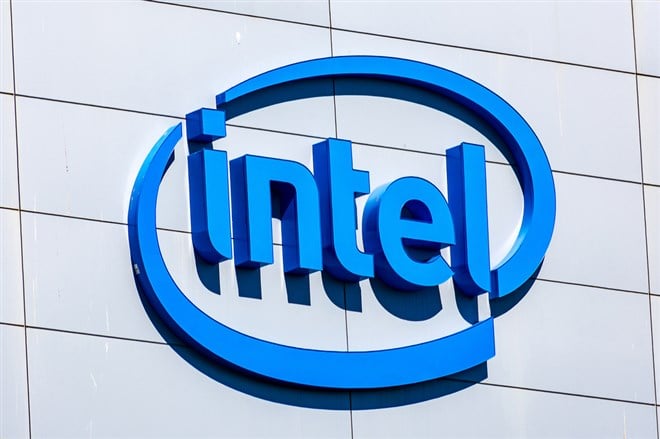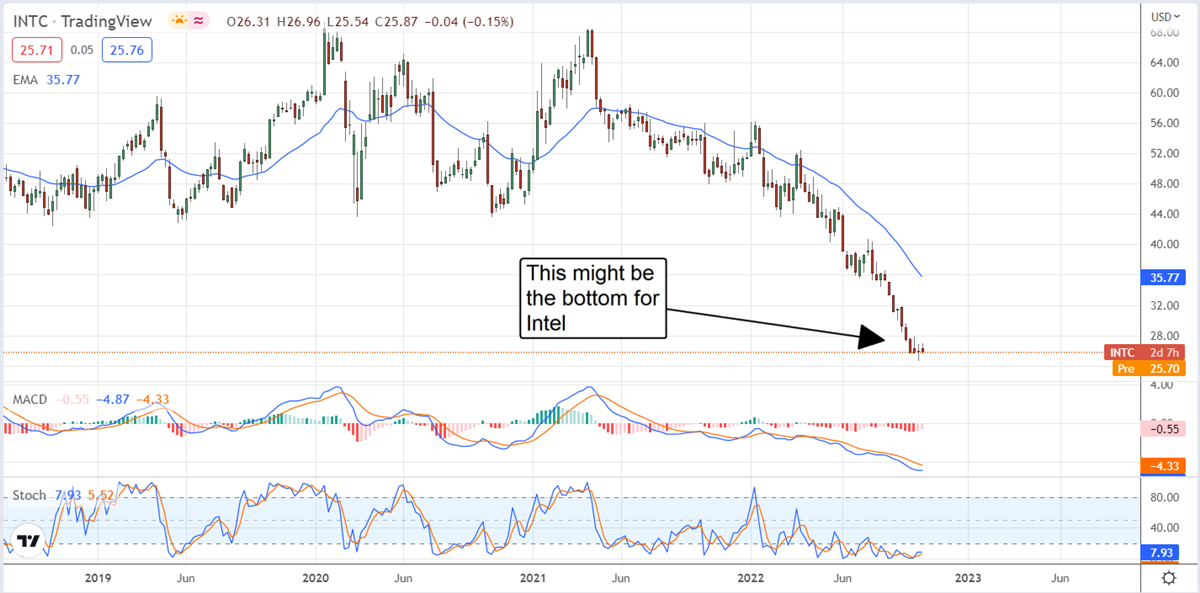
To answer the question of whether Intel (NASDAQ: INTC) is near the bottom the best response right now is yes but it’s too soon to start investing large chunks of capital into the business. The announced spin-off of Mobileye and the issues around its valuation have come as a surprise to the market that may weigh on share prices in the near term. Long-term, the spin-off is a smart move by the relatively new CEO as he positions the company to better compete with the likes of AMD (NASDAQ: AMD), NVIDIA (NASDAQ: NVDA), Qualcomm (NASDAQ: QCOM), and now Taiwan Semiconductor (NYSE: TSM).
Intel bought Mobileye about 6 years ago for $15.3 billion and is now on track to sell a portion of its stake at cost. The company’s IPO valuation has been reduced from the initially expected $50 billion down to a mere $14.4 to $16 billion today. The takeaway is that Intel will raise about $820 million at the high end of the new range and retain 95% ownership of the company. In this light, Intel could sell more if needed to raise additional capital and will certainly benefit from any successes that Mobileye will score. As for the money, Intel plans to use it to improve core operations as well as expand into the foundry business. The expansion into foundry work is perhaps the most exciting part of the news as it will improve Intel’s cash flow, profitability, and diversification.
Intel Offers Value And Yield For Patient Investors
Intel may not be at the exact bottom but there are some rewards for patient investors. The stock is trading at a discount to both the broad market and the semiconductor sector (NYSEARCA: SOXX) and offers one of the highest, if not the highest, yields in all of tech. The stock is trading at less than 12X its earnings outlook and yields over 5.5% compared to a higher 15.5X for the S&P 500 (NYSEARCA: SPY) and anywhere from 15X to 35X for names like Advanced Micro Devices and NVIDIA. Add in the outlook for dividend growth and the stock is almost too attractive to pass up at these levels which is most likely why the analysts are still holding the stock.
There are 26 analysts with commentaries less than one-year-old and most are less than 2 months old. The trend in sentiment is downward for both the consensus Hold rating and the price target but the Hold, while down on a YOY basis from a stronger Hold, is more steady than not. The price target, on the other hand, is down 50% on a YOY basis but still tracking more than 50% above the current price action. With this in play, when the stock does bottom the potential for a strong rebound is high.
Bank of America (NYSE: BAC) analyst Vivek Arya is skeptical of Intel’s turnaround efforts because of “fundamental disadvantages” that simple cost-cutting won’t alleviate. The upside is that Arya believes Intel is the best positioned to succeed with an expansion into foundry work. "Intel is the only U.S.-based supplier that could even get close to that goal over the next several years."
The Technical Outlook: This Is Maybe The Bottom
Intel shares have been in a steep and steepening downtrend since the new CEO took over but it may be nearing the bottom. The price action bears the hallmarks of an overextension that should result in a strong rebound if not an actual, long-lasting bottom. Along with the arc of the decline, the move is accompanied by a weak divergence in the MACD and a bullish crossover in stochastic that is forming at incredibly oversold levels. The flip side of that coin is that recent action may also be forming a bearish flag that could take the stock down another handle or two before it’s through. The next big catalyst for the stock will be the earnings report at the end of October if there is no other news out before. 





